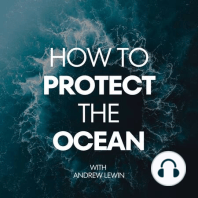61 min listen

SUFB 1167: Why Marine Scientists Write Letters To Protect Biodiversity
SUFB 1167: Why Marine Scientists Write Letters To Protect Biodiversity
ratings:
Length:
63 minutes
Released:
Jun 4, 2021
Format:
Podcast episode
Description
It starts with trying to solve a problem. Dr. Rebecca Helm, Assistant Professor at the University of North Carolina Ashville, wanted to make sure ocean species such as jellyfish and other non-commercial species are protected in the High Seas. She complained about it on Twitter and people responded with the same sentiment. She turned to her Twitter friend, Nichola Clark from the Pew Charitable Trusts, and a marine policy scientist that specialized in the High Sea. Nichola knew the ropes and how to put the movement Rebecca was building into good use, especially since there was a Biodiversity Treaty being negotiated at the United Nations. The movement continued and two years and one global pandemic later, a scientific letter was written and sent to the UN to outline three things the scientists wanted out of the treaty. Listen to the episode to find out what those three things are. Are you a scientist? Sign the letter: http://www.protectthehighseas.com/ Contact me to download the document Nichola mentioned called "A Path to Creating the First Generation of High Seas Protected Areas" Want To Talk Oceans? Join the Speak Up For Blue Facebook Group: http://www.speakupforblue.com/group. Speak Up For Blue Instagram: https://www.instagram.com/speakupforblue/ Speak Up For Blue Twitter: https://twitter.com/SpeakUpforBlue
Released:
Jun 4, 2021
Format:
Podcast episode
Titles in the series (100)
SUFB 065: Ocean Talk Friday is All About COP21: I'm joined with Nathan Johnson to discuss all the news surrounding the climate change talks in Paris and what it will mean for action to live for a better ocean. Shop for the Ocean: http://www.speakupforblue.com/shop 10 Ocean Tips to Conserve the... by How To Protect The Ocean